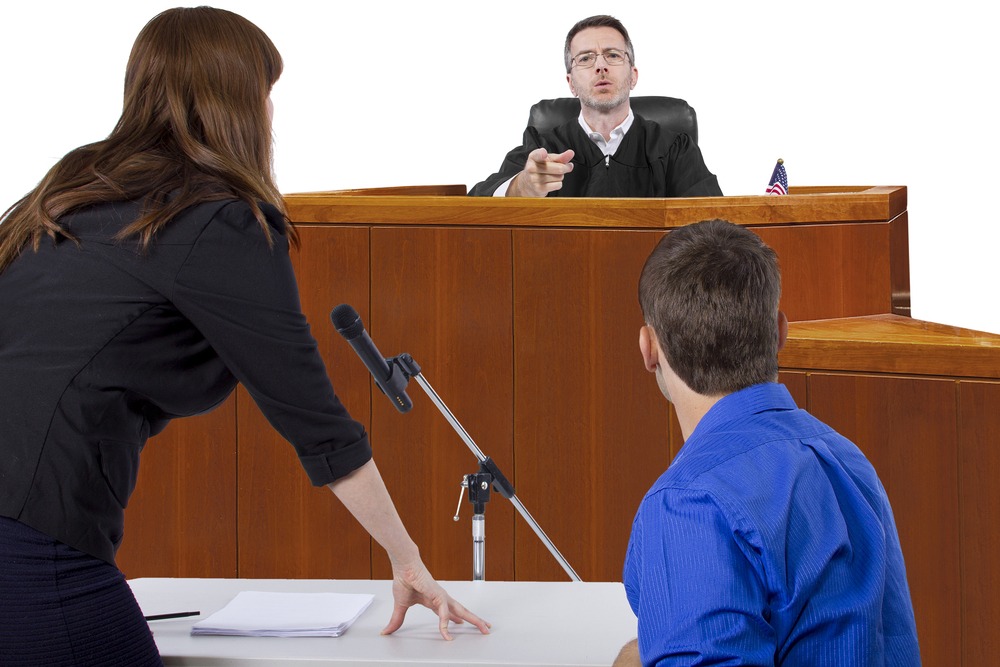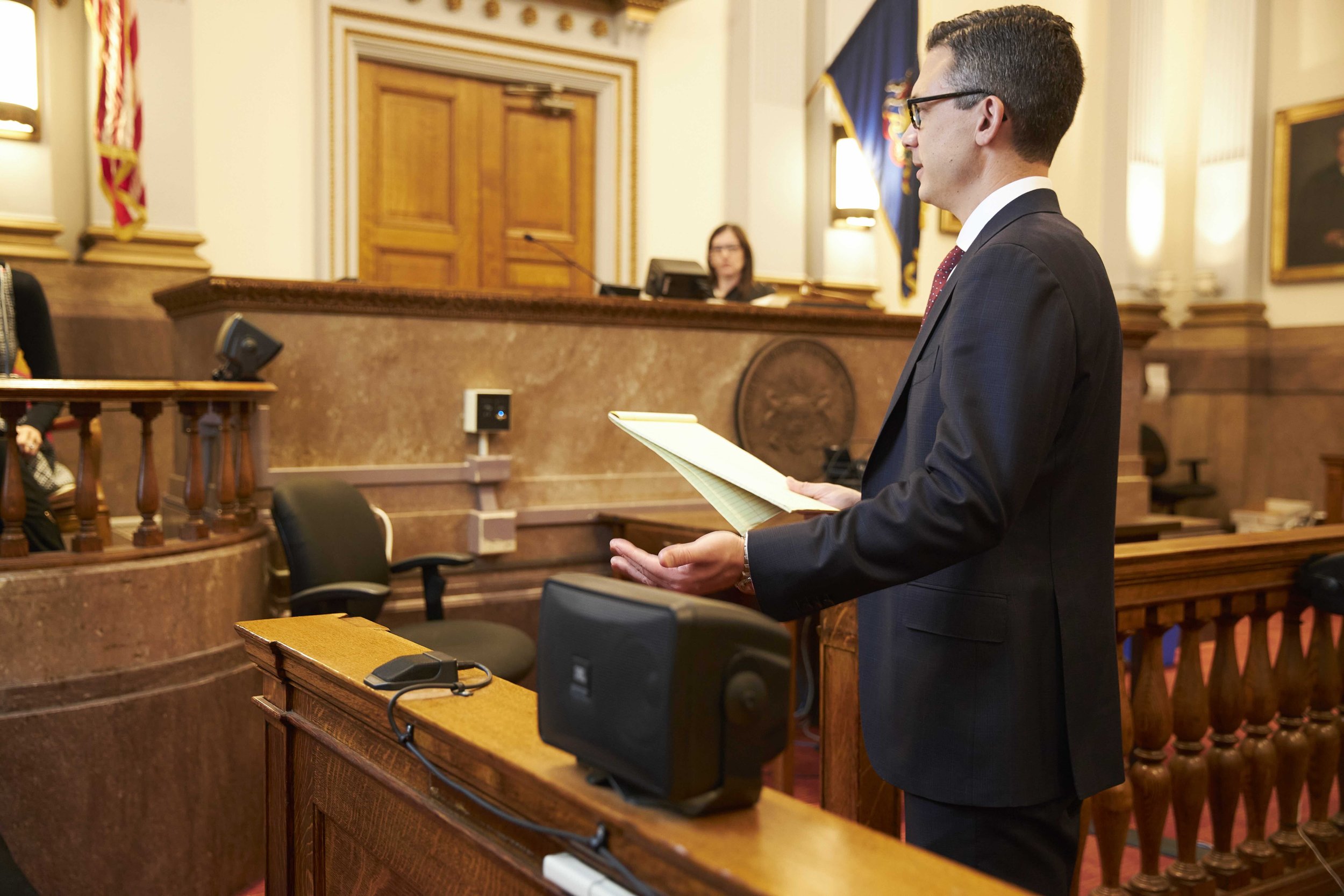At a preliminary hearing, the court reviews evidence to determine if there’s sufficient cause for a trial. A preliminary hearing is a crucial pre-trial procedure in the criminal justice system.
This legal proceeding takes place before a trial to assess whether there is enough evidence to proceed with a full trial. During this hearing, the prosecution presents evidence, including witness testimonies and physical evidence, to demonstrate the defendant’s involvement in the alleged crime.
The defense can cross-examine witnesses and challenge the evidence. The judge then decides whether there is probable cause to continue to a trial. Understanding what happens at a preliminary hearing is essential for defendants and their legal representation to navigate the criminal justice process effectively.
Preliminary Hearing Purpose
A preliminary hearing, also known as a probable cause hearing, is a crucial court proceeding that takes place before a criminal trial. Its primary purpose is to determine whether there is enough evidence to proceed to trial. Essentially, it serves as a “trial before the trial,” where the judge evaluates the evidence presented by the prosecution to decide if there is probable cause to continue the case.
The Role In Criminal Justice
The preliminary hearing serves an essential role in the criminal justice system by ensuring that individuals are not subjected to a trial without sufficient evidence. It acts as a safeguard to protect individuals from unwarranted prosecution and trial.
Comparing Probable Cause And Preliminary Hearings
Probable cause hearings are similar to preliminary hearings but are conducted by a judge or magistrate to determine if the prosecution has enough evidence to proceed to trial. In contrast, preliminary hearings are more comprehensive mini-trials where evidence is presented, witnesses testify, and the judge makes a decision based on the evidence presented.

Credit: www.simmrinlawgroup.com
Key Players Involved
During a preliminary hearing, key players involved include the prosecution, defense, judge, and witnesses. The prosecution presents evidence to determine if there’s enough to proceed to trial, while the defense can cross-examine witnesses. It’s like a mini-trial before the actual court proceedings begin.
Roles Of Defense And Prosecution
During a preliminary hearing, both the defense and prosecution play crucial roles. The defense attorney’s job is to represent the defendant and challenge the prosecution’s evidence to prevent the case from going to trial. They may cross-examine witnesses and argue that there is not enough evidence to support the charges against their client. On the other hand, the prosecution presents evidence and witnesses to convince the judge that there is probable cause to proceed with the trial.The Judge’s Function
The judge in a preliminary hearing acts as a neutral party and decides whether there is enough evidence to justify a trial. They listen to both the defense and prosecution’s arguments, examine the evidence presented, and determine if there is probable cause to believe that the defendant committed the alleged crime. If they find there is, the case will proceed to trial. If not, the charges may be dismissed.During the hearing, the judge also ensures that the defendant’s rights are protected, such as the right to an attorney and the right to remain silent. Additionally, they may set bail or other conditions of release for the defendant.In conclusion, the key players involved in a preliminary hearing include the defense and prosecution attorneys and the judge. Each party has a specific role and function during the hearing, and the judge ultimately decides whether the case will proceed to trial.Typical Proceedings
During a preliminary hearing, the court follows a set of typical proceedings to determine if there is enough evidence to proceed to trial.
Opening Statements
At the beginning of the preliminary hearing, both the prosecution and defense may deliver opening statements to outline their respective cases.
Evidence Presentation
Following the opening statements, the evidence presentation phase commences. The prosecution presents its evidence to demonstrate the defendant’s involvement in the alleged crime.
Witness Testimony
During the hearing, witness testimony plays a crucial role. Witnesses are called to provide firsthand accounts or expert opinions related to the case.

Credit: goldsteinmehta.com
Evidence Considerations
During a preliminary hearing, evidence considerations play a crucial role in determining the course of the case. Understanding the types of admissible evidence and the use of video evidence is essential in this phase of the legal process.
Types Of Admissible Evidence
Admissible evidence in a preliminary hearing includes tangible items, such as documents, photographs, and physical objects, as well as witness testimony. The evidence presented must be relevant to the case and obtained through legal means, ensuring its admissibility in court.
Using Video Evidence
Video evidence can be a powerful tool in a preliminary hearing. It allows for the presentation of visual documentation that can support or contradict other forms of evidence. The use of video evidence can provide a clear and compelling portrayal of events, enhancing the overall understanding of the case.
Legal Strategies
Legal strategies play a crucial role in the outcome of a preliminary hearing. Both the prosecution and the defense employ various tactics and approaches to strengthen their case or challenge the evidence presented. Understanding these strategies is essential for anyone involved in the legal process.
Prosecution Tactics
During a preliminary hearing, the prosecution aims to present compelling evidence to demonstrate probable cause for the case to proceed to trial. This often involves calling witnesses, introducing physical evidence, and presenting a strong argument to persuade the judge of the validity of the charges. Prosecutors may also seek to undermine the defense’s case and weaken their arguments.
Defense Cross-examination
One of the key legal strategies employed by the defense during a preliminary hearing is cross-examining the prosecution’s witnesses. This allows the defense to challenge the credibility of the evidence presented and undermine the prosecution’s case. The defense may also seek to introduce evidence or witnesses to support their position and weaken the prosecution’s arguments.
Potential Outcomes
At a preliminary hearing, several potential outcomes can impact the trajectory of a case. These outcomes can significantly influence the defendant’s legal standing and the nature of the charges. Let’s explore the possible scenarios that may unfold during a preliminary hearing.
Case Dismissal
There is a possibility that the case may be dismissed at the preliminary hearing stage if the prosecution fails to present sufficient evidence to establish probable cause. This outcome results in the charges against the defendant being dropped, providing a significant relief for the accused.
Charge Reduction
During a preliminary hearing, the judge may consider reducing the severity of the charges. For instance, if the original charge is a felony, the judge might opt to lessen it to a misdemeanor or a less serious felony based on the presented evidence and arguments from both sides.
Trial Advancement
If the prosecution successfully demonstrates probable cause and presents substantial evidence, the case will proceed to trial. In this scenario, the defendant will be held to answer for trial on the original charges, marking the advancement of the legal proceedings.
After The Hearing
At a preliminary hearing, the prosecution presents evidence to determine if there’s enough for trial. Witnesses testify, and the defense can cross-examine, similar to a mini-trial. Outcomes include trial, reduced charges, or case dismissal.
After the HearingOnce the preliminary hearing is over, the defendant’s attorney will need to start preparing for the next steps in the case. The hearing will have provided a good indication of the strength of the prosecution’s case and the evidence they have against the defendant. Based on this information, the defense attorney will need to start preparing their case and building a strategy for the trial.Next Steps for DefenseThe defense attorney will need to start looking for weaknesses in the prosecution’s case and developing arguments to counter their evidence. They may need to conduct their own investigation to gather additional evidence and build a stronger case for their client. It is important for the defense attorney to stay in communication with their client and keep them informed of any developments in the case.Preparations for TrialAs the trial date approaches, the defense attorney will need to make sure they are fully prepared to present their case in court. This may include reviewing witness statements, preparing opening and closing statements, and developing cross-examination strategies. The defense attorney may also need to hire expert witnesses to testify on their client’s behalf.In conclusion, after the preliminary hearing, the defense attorney will need to start preparing for trial by analyzing the prosecution’s case, building a stronger defense, and developing a strategy for presenting their case in court. It is important for the defense attorney to stay focused and committed to their client’s case to ensure the best possible outcome.
Credit: www.egattorneys.com
Real-world Examples
During a preliminary hearing, the prosecution presents evidence to determine if there’s enough to proceed to trial. The defense can cross-examine witnesses and challenge the evidence, akin to a mini-trial. Possible outcomes include going to trial, reduced charges, or dismissal based on insufficient evidence.
Notable Case Studies
In a high-profile case, the preliminary hearing revealed crucial evidence leading to a trial.
Another case saw charges being dropped after the defense successfully challenged the prosecution’s evidence.
Insights From Criminal Defense Attorneys
- Defense attorneys strategically present counterarguments during preliminary hearings.
- Experienced attorneys leverage legal loopholes to benefit their clients at this stage.
Frequently Asked Questions
What Is The Most Common Result Of A Preliminary Hearing?
The most common result of a preliminary hearing is either going to trial, having charges reduced, or the case being dismissed.
What Is The Primary Purpose Of The Preliminary Hearing?
The primary purpose of the preliminary hearing is to assess if there is enough evidence to proceed to trial.
What Is The Difference Between A Probable Cause Hearing And A Preliminary Hearing?
A probable cause hearing determines if there’s enough evidence for trial. A preliminary hearing is similar, but adversarial.
Can Video Evidence Be Used In A Preliminary Hearing?
Yes, video evidence can be used in a preliminary hearing to support the prosecution’s case.
Conclusion
To sum up, a preliminary hearing determines if there’s enough evidence to proceed to trial. Possible outcomes include going to trial, reduced charges, or dismissal. It’s a crucial step in the legal process that can impact the course of a criminal case significantly.
Understanding this process is essential.

